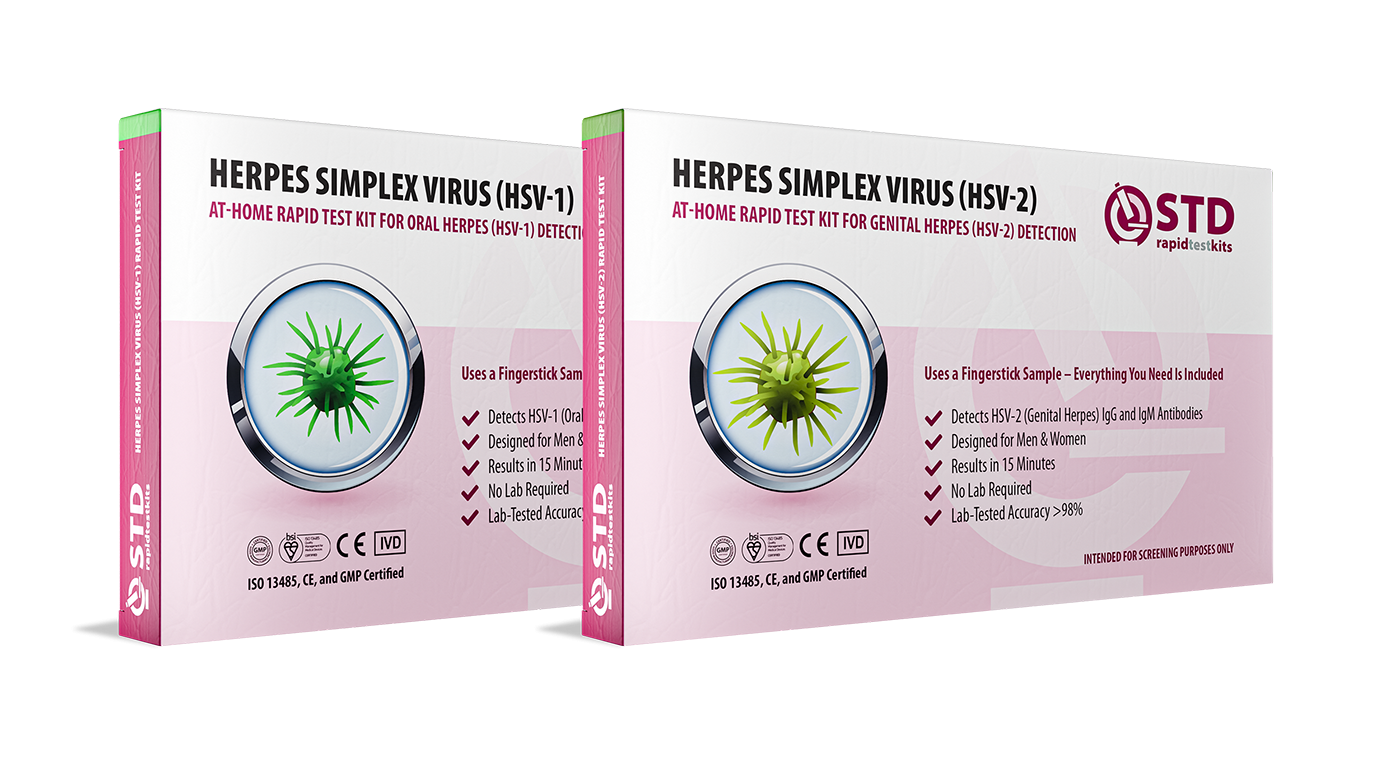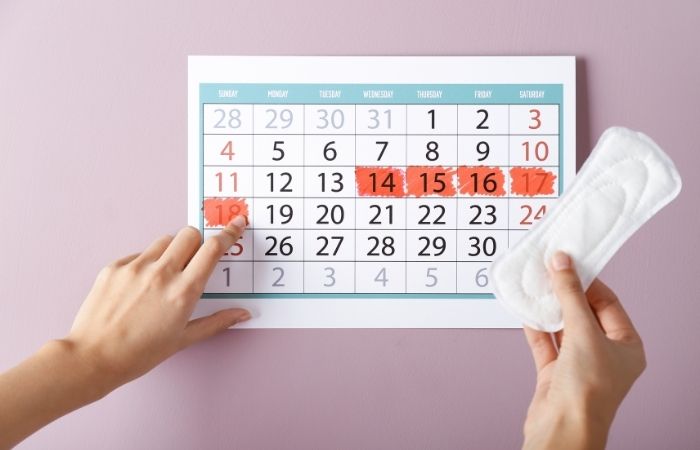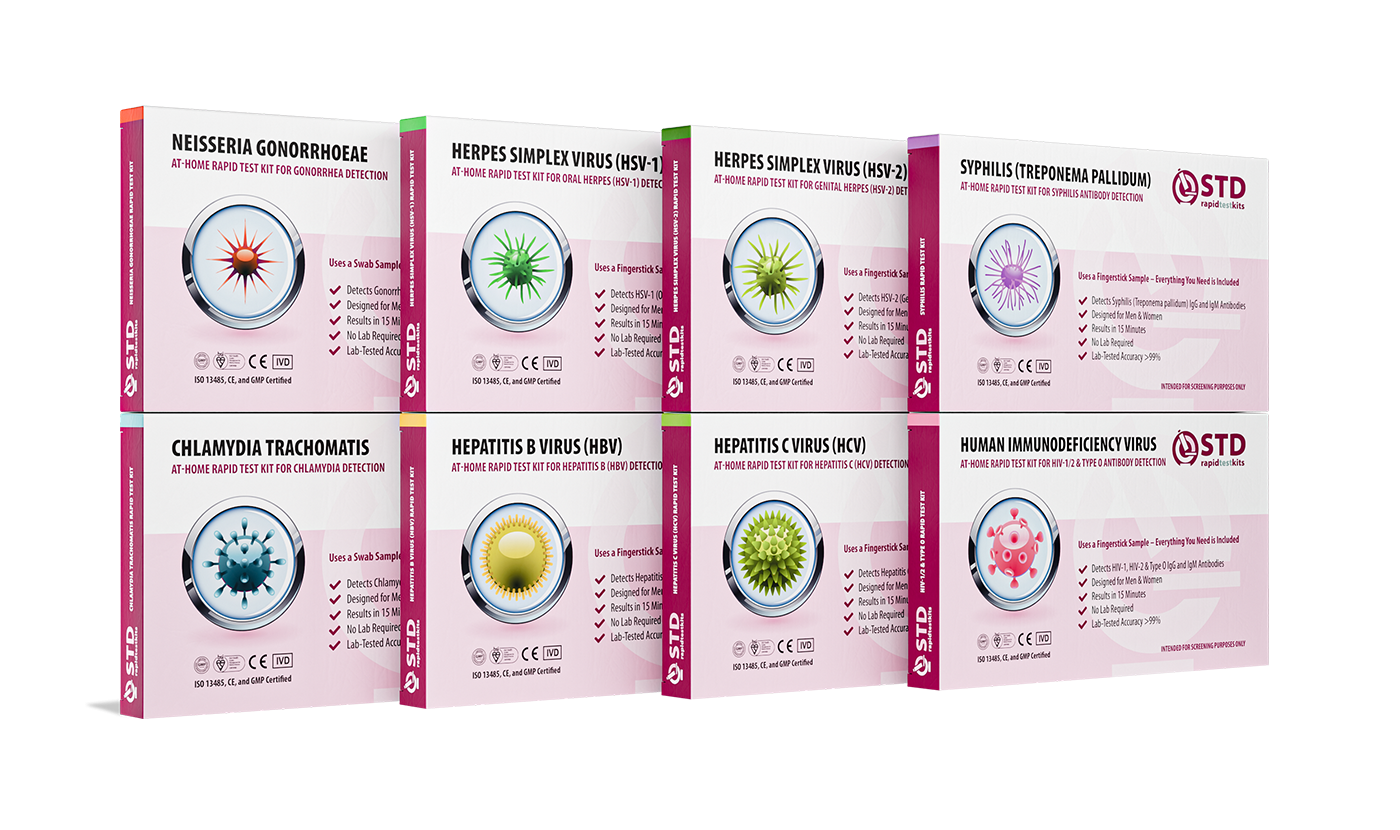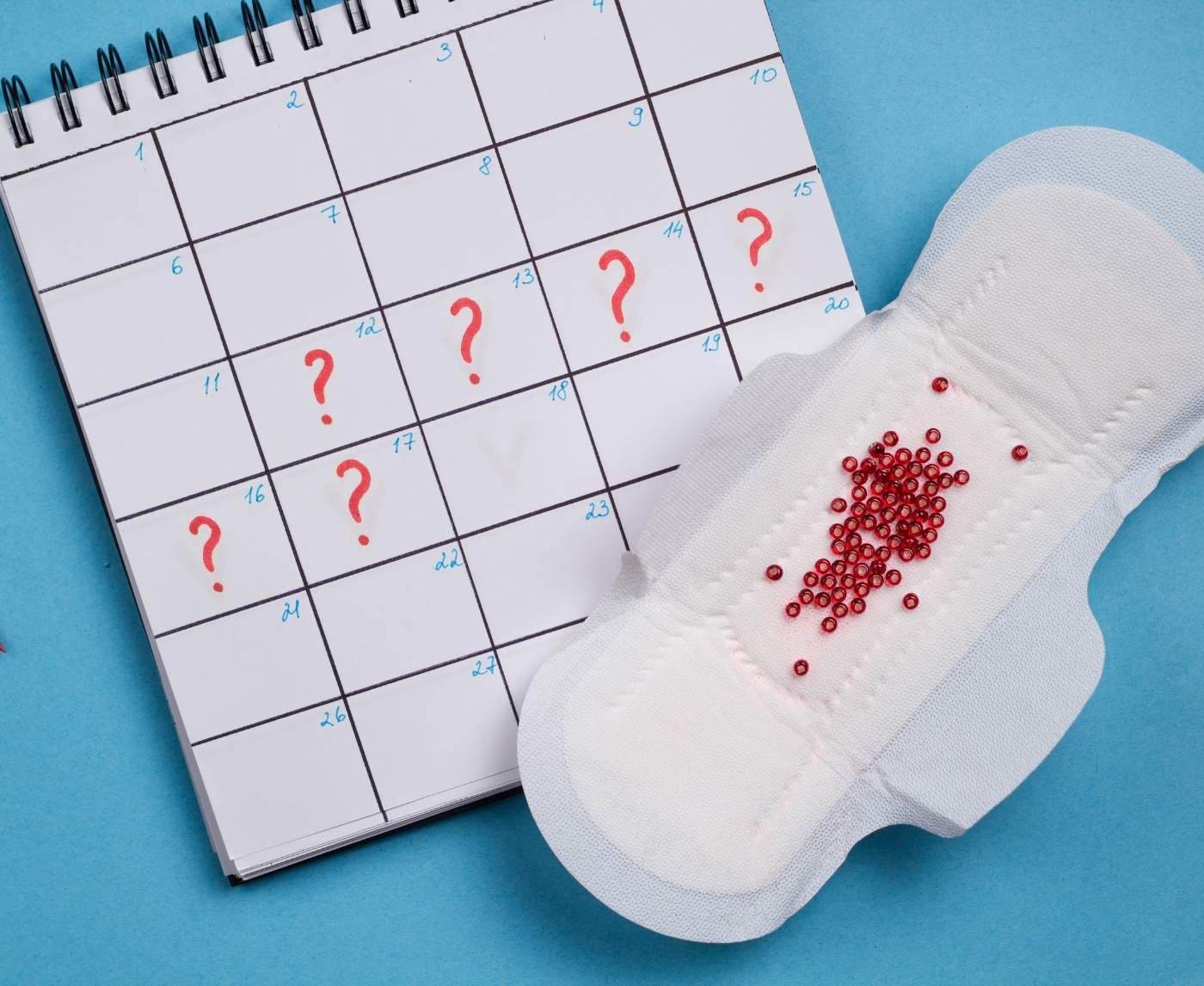Quick Answer: Herpes flare-ups before your period are often triggered by hormonal changes, lowered immunity, and increased stress in the luteal phase. These biological shifts make it easier for the dormant herpes virus to reactivate.
This Isn’t Just PMS, And Here’s Why It Burns
“I thought it was just irritation from my pad,”
says Marina, 27, who started noticing sharp stinging pain on her labia a day or two before her period.
“Then it kept happening. Every cycle. Same spot, same feeling. Eventually I couldn’t pretend it was just chafing anymore.”
What Marina was experiencing wasn’t uncommon, it was likely a cyclical genital herpes outbreak. Unlike a yeast infection or random skin irritation, herpes tends to strike in repeatable patterns. Many people report sores, itching, tingling, or raw skin flaring up a few days before their period, as if their body has it on a schedule. And medically speaking, that’s not far from the truth.
Genital herpes is caused by the herpes simplex virus (HSV), most commonly HSV-2, though HSV-1 (usually oral) can also cause genital symptoms. Once you’re infected, the virus lies dormant in nerve endings until something reactivates it. Hormonal shifts, like the dramatic drop in estrogen and progesterone during the premenstrual phase, can be one of those triggers. This is especially true if your immune system is taking a hit at the same time.
Research backs this up: a 2020 study published in the journal Sexually Transmitted Diseases found that hormonal fluctuations in the luteal phase (the week before your period) can weaken mucosal barriers and allow HSV to replicate more easily. Essentially, the body’s natural defenses dip right when herpes is waiting to pounce.

People re also reading: Testing for Hepatitis C at Home
Why It Happens Monthly: Hormones, Stress, and Immune Chaos
Let’s be blunt: your body is dealing with a lot in the days leading up to your period. Not only are hormones like estrogen and progesterone crashing, but your stress levels might spike, your sleep can get erratic, and your immune system may not fire on all cylinders. For people with HSV, this is the perfect biological storm.
“It felt like punishment for being sexually active, even though I hadn’t had sex in months,” shares Ty, 32, who thought their outbreaks would stop after their last partner.
“Every time my period came, I’d feel that familiar burn again. I thought I was dirty or broken.”
This shame spiral is common, and dangerous. The truth is, herpes doesn’t require new exposure or current sexual activity to flare up. The virus can live silently in your body and reactivate anytime your immune defenses weaken or your hormones fluctuate. This is why people often report cold sores during stress, illness, or menstruation, it’s not about what you’ve done; it’s about what your body is going through.
According to a 2022 meta-analysis from the NIH, up to 36% of people with genital herpes experience menstrual-linked reactivation. The link is especially strong for those with HSV-2, but it’s not exclusive. Even oral herpes can cause internal flare-ups in the vaginal area if transmitted genitally during oral sex, something many people aren’t warned about.
Layer in the cortisol (stress hormone) rise that often accompanies PMS, and you’ve got a recipe for viral reactivation. Your immune system becomes less efficient at suppressing HSV, allowing the virus to travel along nerve pathways to the skin, where it causes visible sores or painful inflammation.
And no, it’s not your fault. This is biology, not bad decisions.
What Period Herpes Doesn’t Mean: Myths That Keep You Silent
Herpes already comes with enough stigma. When it flares up around your period, it can make you question everything, from your hygiene to your identity. Many people blame themselves for outbreaks, assuming they must’ve done something “wrong” or that their body is somehow unclean. That’s not just inaccurate, it’s harmful.
“I thought I was gross,” says Lina, 24.
“My OB-GYN was the first one who told me it wasn’t uncommon at all. She explained that herpes doesn’t care about your moral compass. It cares about your immune system.”
This is critical: herpes flare-ups during your period don’t mean you’re contagious 24/7 or unsafe to be around. They don’t mean you’re reckless, dirty, or doomed to suffer. And they don’t mean you can’t have sex, love, or a life that feels normal and free. They mean your body is going through something deeply natural, and the virus is opportunistic enough to take advantage.
According to the Planned Parenthood Herpes Info Center, around 1 in 6 people between 14–49 in the U.S. have genital herpes, and many don’t know it. Add in the cyclical nature of hormones, and it’s clear why menstruation can become a reactivation window without anyone realizing what’s really happening.
Check Your STD Status in Minutes
Test at Home with RemediumGenital & Oral Herpes Test Kit

 For Men & Women
For Men & Women Results in Minutes
Results in Minutes No Lab Needed
No Lab Needed Private & Discreet
Private & DiscreetOrder Now $75.00 $98.00
For all 2 tests
So What’s Actually Happening Down There?
To understand why herpes flares up right before or during your period, you have to look at what’s happening beneath the surface. The week before menstruation is known as the luteal phase, when progesterone levels are high, then crash. That hormonal shift affects your immune response, particularly in mucosal tissues, like the vaginal wall.
According to a 2020 study published in the journal Cells, sex hormones significantly influence both local and systemic immunity. Estrogen tends to boost immune defenses, while progesterone can suppress them. When both hormones drop right before your period, the vaginal mucosa becomes more vulnerable to viral reactivation, including HSV.
That’s why people often notice tingling, soreness, or tiny blisters popping up 1–3 days before bleeding starts. For some, the symptoms are unmistakable: throbbing pain, stinging urination, visible sores. For others, it’s more ambiguous, just a patch of sensitivity or unexplained itching that fades after a few days. This can make it hard to know whether you’re dealing with herpes, a yeast imbalance, or just period-related skin irritation. But if it keeps happening in the same spot, around the same time, it’s worth getting checked.
“I thought I had recurring razor burn,” says Naomi, 30.
“I even changed my shaving routine and stopped wearing tight underwear. Nothing worked. My doctor finally swabbed one of the spots and confirmed it was herpes.”
That’s an important detail: herpes can be diagnosed through visual exams, but confirmation requires a swab or blood test. Swabbing is most effective during an active outbreak, so if you feel something flaring right before your period, that might be the best time to test.
STD Rapid Test Kits offers discreet, at-home herpes testing that’s easy to use and doesn’t require an appointment. If you’re not sure what’s happening down there, or if you just want confirmation, this can be a powerful first step toward clarity.
Your Period Isn’t the Enemy, Your Body’s Just Talking
Let’s shift the narrative. A herpes flare-up before your period isn’t your body betraying you, it’s your body warning you. It’s flagging hormonal chaos, immune shifts, and stress overload. Instead of shaming that signal, we can learn from it.
If you notice regular outbreaks tied to your cycle, you’re not to blame. In fact, there are specific things you can do to minimize the likelihood of future flares, starting with understanding your triggers and planning ahead. Some people benefit from taking daily antiviral medication, like valacyclovir, which helps suppress the virus. Others only need suppressive therapy during the premenstrual week, creating a kind of “preventive buffer” during the most vulnerable time.
A 2019 study in Frontiers in Immunology found that suppressive antivirals are especially effective in reducing recurrent outbreaks when tailored to known triggers, including menstruation. This kind of care doesn’t just ease symptoms, it restores a sense of agency over your sexual and reproductive health.

People are also reading: Bacterial Vaginosis and Trichomoniasis
When Pleasure Meets Planning: Prevention Without Shame
If you’reHerpes doesn’t mean the end of intimacy; it just means being more intentional with your timing, communication, and self-awareness.
“I used to cancel hookups during my period, even if I was symptom-free,” Jordan, 29, tells us.
“I felt disgusting. But now I just let partners know I track my outbreaks and take antivirals proactively. I don’t owe anyone an explanation, but I give it because I want connection, not secrecy.”
This is an example of sex positivity in action. Taking care of herpes during your cycle doesn't mean not having sex; it means being flexible. Some people choose not to have sex during flare windows, while others are fine with having sex with protection and talking about it openly. It's not about moralizing your body's biology; it's about giving informed consent, feeling comfortable, and keeping everyone safe.
It's not a restriction to plan your sexual activity around your cycle; it's a rhythm. A lot of people have success keeping track of their herpes symptoms along with their period apps. Some people write in journals to keep track of their stress levels, flare-ups, or patterns in their daily lives. The point isn't to worry, it's to notice.
Just like some folks get migraines or acne during PMS, herpes outbreaks follow that same body-clock logic. And once you see the pattern, you can work with it instead of feeling ambushed every month.
Some strategies that people report helpful include:
- Starting suppressive antivirals 5–7 days before their period
- Reducing caffeine and alcohol to lessen systemic stress
- Prioritizing sleep, hydration, and magnesium-rich foods (which support immune regulation)
- Switching to breathable cotton underwear or pads during outbreaks
- Keeping lube and barrier methods handy for dry or sensitive tissue days
But again, the best strategy is the one that works for you. There’s no one-size-fits-all protocol, just tools to support your autonomy.
You Deserve Clarity, Not Guesswork
Too many people suffer silently with symptoms they assume are “just part of their period.” But when you’re dealing with recurring vaginal sores, burning, or blisters in the same spot every cycle, that’s not random, that’s a signal. Whether it’s herpes or another skin condition, getting tested is how you stop guessing and start feeling in control.
If going to a clinic feels overwhelming, you’re not out of options. At-home testing has come a long way. You can swab during a suspected outbreak and send it to a certified lab without ever sitting in a waiting room or answering awkward questions. If you test positive, you’ll have access to treatment and prevention strategies that fit your life. If you test negative, you’ll have peace of mind, or maybe a new direction to explore (like hormone-related eczema or lichen sclerosus, which can mimic herpes symptoms).
This at-home combo test kit lets you screen for common STDs discreetly, including herpes. It’s fast, reliable, and designed for bodies with real questions. You don’t have to explain yourself to anyone. You just have to care enough to know.
Because the truth is: you can’t solve what you haven’t named. And naming it doesn’t make you weak, it makes you strong as hell.
Check Your STD Status in Minutes
Test at Home with Remedium8-in-1 STD Test Kit

 For Men & Women
For Men & Women Results in Minutes
Results in Minutes No Lab Needed
No Lab Needed Private & Discreet
Private & DiscreetOrder Now $149.00 $392.00
For all 8 tests
FAQs
1. Can your period make herpes flare up?
Not directly, but changes in hormones and a weakened immune system during the luteal phase can cause herpes to reactivate just before or during your period.
2. Do I always get sores on my genitals when I get my period?
If the sores keep coming back in the same place and at the same time, it could be a herpes outbreak. The only way to be sure is to test.
3. Is it okay to have sex when I have herpes?
During an active outbreak, it's best to stay away from genital contact. Even with protection, open sores make it more likely that the disease will spread.
4. Is it herpes or just an irritation from a tampon?
Tampons can make you feel uncomfortable, but if you keep getting burning, blisters, or sores in the same place every cycle, it could be herpes. You can be sure with a swab test while you have symptoms.
5. Will antivirals help if I only get outbreaks when I'm on my period?
Yes. You can take suppressive antivirals all the time or just during the week before your period. Ask your provider about ways to plan your time.
6. Is it possible to get herpes from oral sex?
Yes, for sure. HSV-1 (usually oral) can be passed to the genitals during oral sex, which can cause genital outbreaks that are just like HSV-2 outbreaks.
7. How long do HSV-1 outbreaks usually last? And can it be cured?
Most herpes outbreaks tend to last anywhere from 7 to 10 days, but the length does vary due to a variety of reasons. Treatmen can shorten the duration as well, though remember, it can't cure oral herpes.
8. Can you use tampons or menstrual cups when you have an outbreak?
It might be fine if you don't have any open sores or irritation. But a lot of people switch to pads or period underwear to avoid rubbing during flare-ups.
9. Can stress and PMS make herpes worse?
Yes. Cortisol, which is the hormone that causes stress, makes the immune system less effective. It can make outbreaks more likely when combined with PMS fatigue and hormone crashes.
10. How can I check for herpes at home?
The Herpes Test Kit from STD Rapid Test Kits is an FDA-approved test. Swab when you have symptoms and follow the instructions that come with it.
You Deserve Answers, Not Assumptions
Recurring vaginal sores before your period aren’t something to ignore, or shame yourself for. They’re signals. Your body is trying to protect you, not punish you. Whether it’s hormonal shifts, immune dips, or underlying stress, knowing your triggers is the first step to reclaiming control.
You don’t have to suffer silently. You don’t have to wait for symptoms to “go away.” And you sure as hell don’t have to feel dirty for listening to your body. Herpes is common. Periods are messy. But you? You’re capable, curious, and deserving of clarity.
Don’t wait and wonder, get the clarity you deserve. This at-home combo test kit checks for the most common STDs discreetly and quickly.
Sources
1. Medical News Today – Causes of Female Genital Sores
2. Healthline – What Can Cause Vulvar Ulcers?
3. ACOG – Genital Herpes: Prodrome & Recurrence Details
4. Teen Vogue – Why Herpes Outbreaks May Happen Around Your Period










